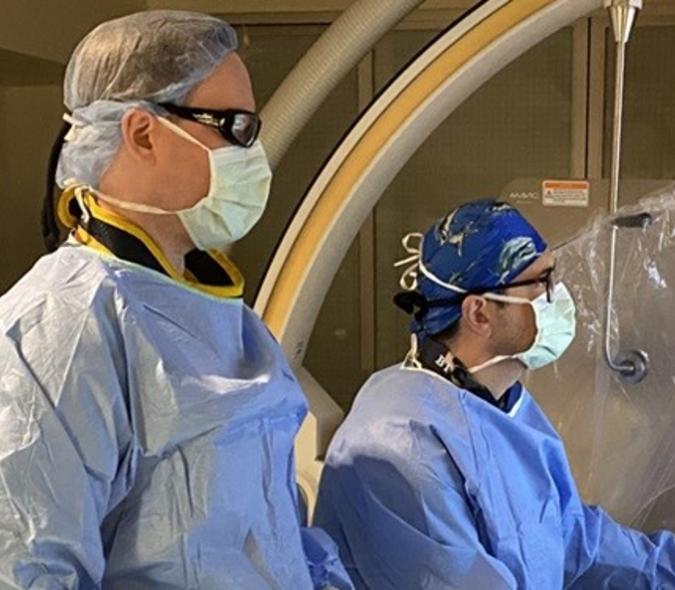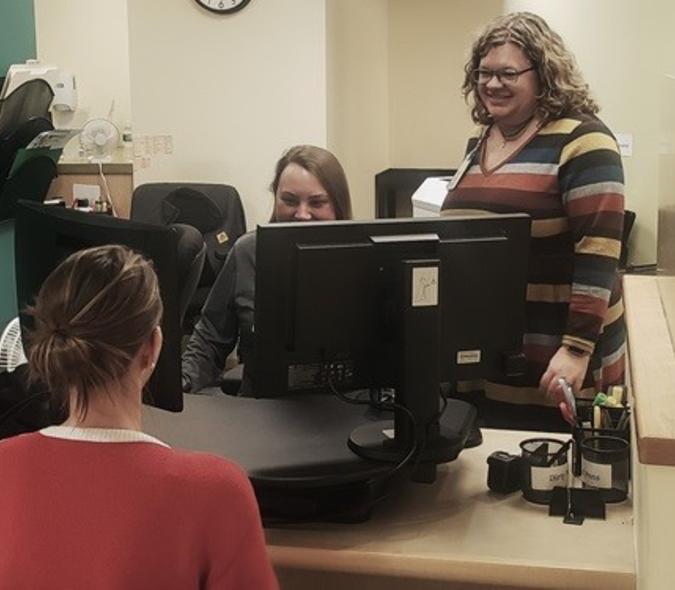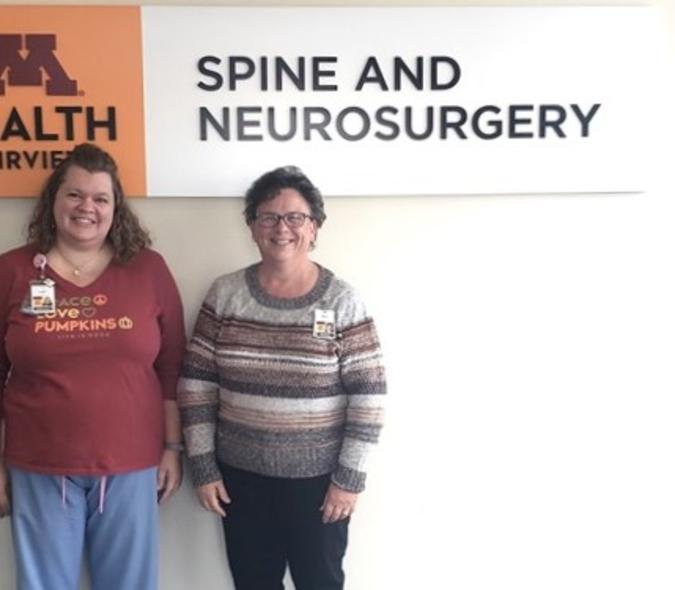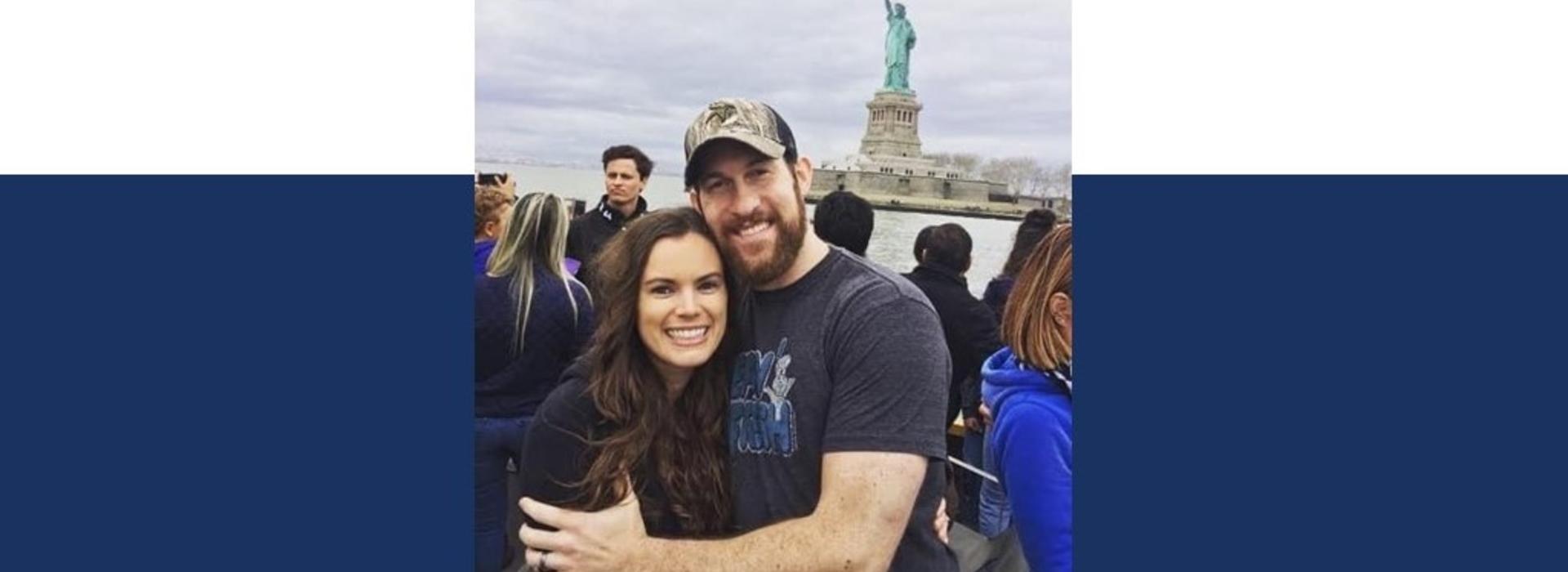
Listening to and partnering with brain tumor patients to optimize their outcome
Minnesota resident Jeremy Priem is throwing everything he can at his brain cancer – and doing it his way. Diagnosed with an unusual form of astrocytoma, he is taking a very personal approach to his post-surgery treatment. Thanks to his wife, Julia, they had a foundation upon which they could build.
Several years ago, she had watched a documentary about an alternative cancer treatment. “The focus of the film was high-dose IV vitamin C,” said Julia. “I remember feeling at the time that if I ever got cancer, this would be the treatment I chose. Little could I know that years later, it would be Jeremy facing this. I felt like it was divine intervention, giving us other options.”
What made it easier to try this approach was that Jeremy felt he wasn’t just facing a cancer diagnosis – it was a terminal cancer diagnosis – and he wasn’t eligible for any clinical trials. “Even if he followed exactly what the doctor recommended, we were told by the oncologist that the cancer would eventually kill him,” said Julia. “Our backs were against the wall. Why not take a different path?”
Tailoring the treatment to the patient
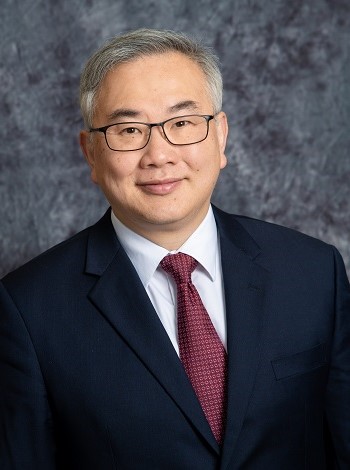
Jeremy’s brain cancer journey started with an awake surgery performed by Neurosurgery Department Head Clark C. Chen, MD, PhD. “His tumor was located in the area of the brain that controls speech, and the MRI showed that it merged with the normal brain without clear boundaries,” said Chen. “Maximizing safe removal of the tumor would give Jeremy the best chance of fighting this cancer but it came with the risk of compromised speech. In deciding how best to proceed, it was important for me to understand who Jeremy is and what he values.”
Prior to the procedure, Chen met with Jeremy and Julia to discuss the risks and benefits of various options, including planned subtotal resection to preserve Jeremy’s speech, maximized safe resection while monitoring Jeremy during an awake surgery, and maximized safe resection with Jeremy undergoing general anesthesia. Ultimately, Jeremy and Julia selected the awake surgery option.
Chen was able to finely tune the surgery because Jeremy could respond to questions. “We pushed the resection to the maximum limit and stopped only when Jeremy reported a slight speech deficit,” explained Chen. “I think we gave him the best possible outcome – based on his choice of what that outcome was.”
Keeping quality of life in mind
Tissue samples taken from the surgery confirmed that Jeremy has an unusual form of astrocytoma. These brain tumors are graded between 1 and 4 – the higher the grade, the more aggressively it behaves, according to Chen. “Jeremy’s tumor sample did not have mutations that typically define a grade 3 tumor, but there were more actively growing cells than is expected of a grade 2,” he said. “With the extent of removal that I achieved, it is reasonable to simply observe the patient post-operatively; however, if the tumor is grade 3, chemotherapy and radiation are absolutely necessary.”
The final pathology report recorded the tumor as a grade 3 astrocytoma. “It is the standard practice for pathologists to move a tumor as a higher grade when there is uncertainty,” said Chen. “But I felt it was important to review with Jeremy the nuances of his diagnosis.” Chen sat down again with Jeremy and Julia, as he did prior to surgery, and explained the situation.
The couple ultimately opted against immediate chemotherapy and radiation, reserving these treatments for a later time. They feel that Chen has been very supportive of their decision to pursue alternative treatment. “He takes the time to look at my MRIs and provides a voice of support that is very helpful. He had the most important role of all…he saved my life,” said Jeremy. Julia added that, “We feel like Dr. Chen offers Jeremy so much hope. He genuinely cares about him as a patient and a person and that’s huge.” Jeremy and Julia ultimately sought the care of a neuro-oncologist who is equally supportive of their decisions.
Jeremy’s treatment regimen
With Julia’s guidance and support, Jeremy is relying on the high-dose IV vitamin C treatments, as well as following an anti-inflammatory diet, getting gentle exercise every day, and taking additional supplements, such as Boswellia, which is derived from frankincense resin.
“He had significant swelling in his brain before and after surgery,” said Julia. As a result, Jeremy was put on the steroid, Decadron, but it wasn’t controlling the swelling and caused several unwanted side effects. “We were desperate for a replacement,” she said. “Then I heard from brain tumor support groups about Boswellia. Our nutritionist told us about a German study that showed it was just as effective as Decadron. Jeremy started taking it at the end of December 2022 and we slowly worked up to a high dose. Once taking Boswellia, he was able to successfully wean off the steroid.”
It's not without risk
Jeremy and Julia emphasize that taking this route isn’t without risk – Jeremy fanatically tracks his data to lessen that risk. “I record my weight, blood pressure, heart rate, blood sugar, and ketone levels every morning,” he said. “I also track everything I’m taking, including my calories. That has been a saving grace – to be able to look at the data if things go wrong and potentially find out why. It’s already paid dividends.”
That data helped Jeremy overcome a sidetrack. When he began his treatment, research indicated that a keto diet would help. Unfortunately, it was difficult for him to stick to and he began having breakthrough seizures. Looking at his data, Julia and Jeremy decided that fluctuations from the diet were causing the seizures and he switched to the anti-inflammatory diet, which has been much easier for him to sustain.
Another thing that people should consider about Jeremy’s alternative approach is that it’s not covered by insurance.
Progress looks good
Overall, things are going well. “He had an MRI right after surgery and then another at the end of December because he was having problems with seizures and swelling,” said Julia. “The next MRI was in mid-February, when he was completely off Decadron and on the high dose of Boswellia, and the swelling was significantly reduced.”
Chen believes that Jeremy is in a good place. “The most recent MRI looks fantastic, and Jeremy is doing great,” he exclaimed. “However, we need to continue to follow Jeremy closely. Timely initiation of radiation and chemotherapy is essential if there is evidence of tumor growth.”
Care that we all deserve
Jeremy attributes his success so far to his wife and his faith. “My faith is absolutely the reason I can do this,” he said. “While this has been a test of that faith, I realized that the more I cling to the things of this world, the heavier they become. When I embraced the ‘in Christ alone’ mentality, I became truly unbreakable.”
“It takes a special person to step outside the medical treatment box,” Chen said. “While we need to advocate for what we as physicians do know, we need to balance that with the humility of what we don’t know. That is why I feel it is important to support what Jeremy and Julia are doing.
“In medical school, we learned patterns of disease by ‘lumping’ all patients into a disease entity,” continued Chen. “As a practicing physician, we learn how each patient is different and that many patients do not neatly fit into these disease entities. Jeremy is a case in point. If uncertain, it is essential that we, as physicians, recognize our knowledge limitations. We need to sit down and talk with the patient to tell them what we know and what we don’t know. We need to understand what our patient values and what their faith and beliefs are. Only then, can we partner with our patients to provide the care that we all deserve.”
